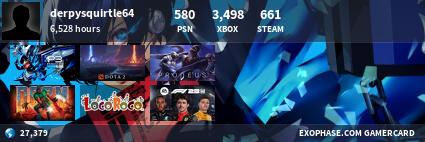Don't have much else to do this evening, so thought I'd post some thoughts about Sony. I'm just passing the days anymore. Passing them by the power..of GRAYSKULL!!
Anyway, so I think a lot of us are looking forward to Sony's first set of PlayStation 5 game announcements slated for the coming week. My frame of mind going into this will be centered substantially on how effectively Sony is appealing to developers, both third and first party because that's been a key ingredient of their successes so far. PlayStation systems usually outsell the competition at the end of the day (or generation, as it were) and the essential reason is that PlayStation systems tend to wind up with the most current-gen games. That is something achieved by, frankly, sucking up to developers. That, even more frankly, is what Sony does best.
Let's be honest, Sony isn't the most brilliant and creative institution. If you want creative hardware, Nintendo is the place you go to. If you want the most sophisticated hardware, Microsoft is the place you go to. That stuff certainly has its merits, but if you want to win a console war, your best chance is probably to make sure your platform has the most games. Making highly unique or super-advanced hardware isn't realistically the way to do that. No, the way to do that is to minimize the period of adaptation that developers have to go through early on. Sony has made that a clear messaging emphasis so far. We'll see in the week ahead if developers agree that the PS5 is easier to adjust to making games for than the Series X. That's something I'm looking for.
Related to this, Sony is also generally pretty nice to developers in ways that go beyond the nature of their hardware. I mean that in a philosophical sense. They don't rule over their first-party developers in an overbearing way. They let them make the games they want to make, which is why you've seen so many artistic masterpieces from their various studios this last decade. There really is meaning to that because it's not always what gamers themselves want if we're intellectually honest about it. Here's what I mean:
Consider Sonic Mania. That's a Sonic the Hedgehog game that was made by fans rather than by Sega themselves or any formal developers related to them. I feel that that game exemplifies the conservative biases of gamers as an overall group, as it really just offers cosmetic changes to the classic Sonic formula (I mean half the zones are literally just altered versions of pre-existing ones from the early '90s), whereas Sega themselves had been making bigger changes from game to game. I think you could map it out like this:
DEVELOPERS are the artists of this medium. They're the most creative-minded and interested in doing new things (including with existing franchises). They want freedom.
PUBLISHERS are money-centered institutions that want that magical balance between the new and the old so that both developers and gamers are happy. They exist to censor the artistic expression of developers until they're confident that that balance has been struck. In exchange, they supply developers with the resources they need.
GAMERS are the consumers and and are the most conservative and closed-minded, especially when it comes to familiar franchises. Broadly speaking, they only really want games as a whole, and their favorite franchises in particular, to change in cosmetic ways over time because they want the magic of that particular thing that made them fans in the first place to keep living on.
That's been my observation over the decades anyway.
Personally, my general preference is for developers to run wild, which I think is what makes me a bit of an unconventional gamer. I too though carve out exceptions to that rule. I'm closed-minded about Metroid, Castlevania, and the aforementioned Sonic because I don't trust their publishers with those franchises anymore. I think fans should be allowed to make all future installments of those franchises. There's a difference between making something that's from the heart and doing new things just to be doing new things and the Metroid and Sonic franchises have fallen into the latter category in general of late. More largely though, I favor letting developers run wild.
The commercial risk to changing is that you could alienate more of your existing fans than the number of new fans you bring on board. I get that. That's what publishers are there for, to minimize your commercial risk. But personally, I like real art and real art involves taking those risks, not just playing it safe all the time like consumers want you to. Art defies the logic of markets and the laws of supply and demand. What art is to me as it pertains to gaming is something that the creators want to play themselves. Something that's from the heart, not just something that's created because it's theoretically in-demand. It's something that harkens back to the old days when gaming companies were smaller and didn't have the resources for market research and testing comparable to today, back when most games being released were original IPs, not sequels or remakes, and new genres were being conceived routinely. That's what I love about the indie world. It has a lot of those characteristics. I mean most stuff on Steam and such is original IPs, not sequels or remakes like in the AAA market. In the AAA market, new properties are the exception, not the rule, In the world of independent development, it's the other way around. Sequels are rare, and clearly earned.
Anyway, the point I'll eventually get around to in this stream-of-consciousness post is that, you know, if you want a fairly one-sided emphasis on fan service, Sony's first-party releases may not be your natural first choice. And I mean fan service has its merits and can be really fun! Nintendo's stuff tends to be dripping with it especially and I enjoy Nintendo games aplenty for example! But there's just more depth of feeling that I get out of say Naughty Dog's titles for example. Art, real art, tends to be more controversial than simple fan service, you won't be surprised, and you see that reflected in the mixed receptions for some stuff like Death Stranding and apparently The Last of Us Part II. But I think it often yields dividends in the level of connection one can experience. I'm for gaming as an art form, not just as a form of meaningless entertainment and I'm glad that Sony allows that to happen so often in the AAA market with their studios.
Bottom line: being nice to developers, as a hardware maker/publisher, gets you both financial rewards and a passionate first-party lineup. That's what I'm looking to see vis-a-vis the PlayStation 5 lineups we'll be seeing starting this coming week ahead. When Sony "wins", it's because that's what they've been doing.






























































